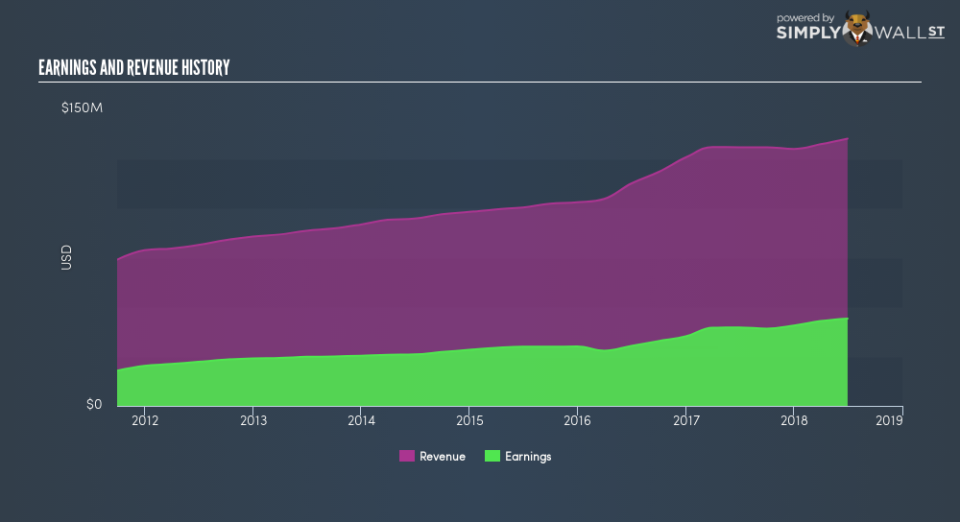How German American Bancorp Inc (NASDAQ:GABC) Can Impact Your Portfolio Volatility

If you’re interested in German American Bancorp Inc (NASDAQ:GABC), then you might want to consider its beta (a measure of share price volatility) in order to understand how the stock could impact your portfolio. Volatility is considered to be a measure of risk in modern finance theory. Investors may think of volatility as falling into two main categories. First, we have company specific volatility, which is the price gyrations of an individual stock. Holding at least 8 stocks can reduce this kind of risk across a portfolio. The other type, which cannot be diversified away, is the volatility of the entire market. Every stock in the market is exposed to this volatility, which is linked to the fact that stocks prices are correlated in an efficient market.
Some stocks are more sensitive to general market forces than others. Beta can be a useful tool to understand how much a stock is influenced by market risk (volatility). However, Warren Buffett said ‘volatility is far from synonymous with risk’ in his 2014 letter to investors. So, while useful, beta is not the only metric to consider. To use beta as an investor, you must first understand that the overall market has a beta of one. A stock with a beta below one is either less volatile than the market, or more volatile but not corellated with the overall market. In comparison a stock with a beta of over one tends to be move in a similar direction to the market in the long term, but with greater changes in price.
Check out our latest analysis for German American Bancorp
What GABC’s beta value tells investors
Zooming in on German American Bancorp, we see it has a five year beta of 0.80. This is below 1, so historically its share price has been rather independent from the market. If history is a good guide, owning the stock should help ensure that your portfolio is not overly sensitive to market volatility. Beta is worth considering, but it’s also important to consider whether German American Bancorp is growing earnings and revenue. You can take a look for yourself, below.
Does GABC’s size influence the expected beta?
German American Bancorp is a small company, but not tiny and little known. It has a market capitalisation of US$866.6m, which means it would be on the radar of intstitutional investors. Small companies often have a high beta value, but they can be heavily influenced by company-specific events. This might explain why this stock has a low beta.
What this means for you:
Since German American Bancorp is not heavily influenced by market moves, its share price is probably far more dependend on company specific developments. It could pay to take a closer look at metrics such as revenue growth, earnings growth, and debt. This article aims to educate investors about beta values, but it’s well worth looking at important company-specific fundamentals such as German American Bancorp’s financial health and performance track record. I urge you to continue your research by taking a look at the following:
Future Outlook: What are well-informed industry analysts predicting for GABC’s future growth? Take a look at our free research report of analyst consensus for GABC’s outlook.
Past Track Record: Has GABC been consistently performing well irrespective of the ups and downs in the market? Go into more detail in the past performance analysis and take a look at the free visual representations of GABC’s historicals for more clarity.
Other Interesting Stocks: It’s worth checking to see how GABC measures up against other companies on valuation. You could start with this free list of prospective options.
To help readers see past the short term volatility of the financial market, we aim to bring you a long-term focused research analysis purely driven by fundamental data. Note that our analysis does not factor in the latest price-sensitive company announcements.
The author is an independent contributor and at the time of publication had no position in the stocks mentioned. For errors that warrant correction please contact the editor at editorial-team@simplywallst.com.
